Regardless of which candidate you support, the bottom line is we have another matchup between a “Hope” and “Change” candidate and a Status Quo candidate. Frankly, I thought the passion-driven Joe Biden and even the future-driven Martin O’Malley could have filled that role better than a 74 year-old “Democratic Socialist” but I must admit Bernie Sanders is finally embracing the mantle in his own way with a “Yes We Can” approach to politics that is truly the more “pragmatic” course to win elections and move forward a progressive agenda.
And there is ample proof that it works besides the poll numbers and the quality of the policies of his ideology.
There is a saying that there are 4 M’s in campaigns and it seems that Bernie has advantages with all of them. Obama’s version included Management instead of the more common category of Media which I think deserves more attention in today’s new media-centric world and because all these elements are just bi-products of good management.
I would also add Movement because if you’re running for President of the United States you’re also running to be the leader of the Democratic Party which needs to succeed in Congress and in state elections for your administration to succeed.
#1 MESSAGE: Bernie is offering voters an uplifting theme that excites people to participate rather than make a pitch that is seen as inauthentic or defeatist by asking for non-supporters to change their tune in the general election...as if their vote wasn’t needed now.
#2 MEDIA: Bernie is a regular on news shows and is surging on social media and hasn’t tried to limit debates or press appearances.
#3 MOBILIZATION: Bernie has built a larger grassroots operation in Iowa with 50% more offices.
#4 MONEY: Bernie might have 50% in less total donations but he has a fundraising operation that is more scalable by attracting millions of low-dollar donors who can make several repeat contributions. But also, this includes how money is SPENT and based on how many offices each candidate has in Iowa he also has an advantage there.
#5 MOVEMENT: Even though he is not a fan of the party establishment, Bernie is asking Democrats to vote in larger numbers to create Majorities locally and nationally again. His opponent rarely brings up this reality even though DNC Chair Howard Dean’s 50-State Strategy in 2005 helped lead to the Democratic dominance of 2008.
With his new “America” ad, as Howard Dean and Barack Obama did before him, Bernie Sanders is showing us an uplifting vision that celebrates our country AND our democracy. We see people coming together who have the power to create change and aren’t just victims of corporate or ideological interests that want to take our democracy backward.
This is where Hillary Clinton doesn’t bother to go and really is a weakness if she is going to grab the Obama voters who may be more pragmatic but still yearn for a idealistic movement they can believe in. But in a world where a majority of elected officials are Republicans, “establishment” candidates should be out-flanking their insurgent counterparts to inspire people to join a “Democratic” movement of Hope and Change.
Despite his kind comments about Hillary recently, Obama said in the same Politico interview, "My bet — and I may end up being wrong about this — my bet is that the candidate who can project hope still is the candidate who the American people, over the long term, will gravitate toward."
From my perspective, despite the peaceful socialist rhetoric, Bernie Sanders seems to be pretty level-headed on foreign policy and capitalism but has little interest in either. He also has some wild-eyed ideas on policy that go beyond the concept of a “progressive” system that asks us to pay our “fair share” of what we can afford for services like healthcare and education….as opposed to a plan for somehow getting the rich to pay for it all.
On the other hand, is it worse to not have any wild-eyed ideas at all? If Bernie Sanders pursued a single-payer system but got a “Medicare For All” public option in the Obamacare exchanges as a compromise wouldn’t that be better than the vague call for improving Obamacare without telling us how you can win enough elections to do it?
Where Hillary says “Yes I Can!” manage things as they are and protect Obama’s progress because “No We Can’t!” do any more and we need to tell Republicans that “No, They Can’t!”….Bernie focuses on his message and says “Yes We Can!”
Matt Yglesias notes that Bernie is selling “Hope that yes we can make enormous change happen if individual people believe things can get better ... and come together to make it so. Sanders has a story that channels these emotions. Not everyone finds that story plausible, but it's a story. And Clinton really doesn't have one."
How much would it have cost Hillary to create a theme for her campaign? Her 2008 launch told us she was “In It To Win It” and her 2014 book was summed up as “Hard Choices.” In 2016, I have read about how Hillary’s theme is “Love & Kindness”, but officially she has been “Fighting For You” which tells voters to sit back and let her handle everything. Ironically, this has little to do with FDR’s “Four Fights” that were highlighted as part of her campaign launch at “Four Freedoms Park” on Roosevelt Island then never discussed again.
As recently as the 1/17 NBC Debate and the 1/25 CNN Town Hall, Hillary still had trouble making a pitch to young voters where she could articulate why her campaign would appeal to them policy-wise or outreach-wise. That’s kind of surprising considering that Bernie is pulling in about 60% of the millennial vote in many polls and has been a huge weakness for her campaign for months.
A presidential campaign is not simply a job interview where we compare resumes...it is a call for Americans to participate in our democracy. If Democrats vote at the same rate as Republicans, they win….but they need to be challenged to act on behalf of their dreams. To me, that is the essence of Bernie’s political revolution regardless of whether compromises will be necessary. As they say in football, the only thing the “prevent” defense does is prevent you from winning.
You won’t ever win back a majority in the Congress to get anything done unless you expand your base and the total electorate with big ideas and big outreach. That means you need candidates with the mindset that they will work to mobilize Democrats not expect Democrats to magically mobilize for a candidate.
In 2016, Bernie is stealing a little bit of the Obama playbook and asking us to look forward to a “Future To Believe In” and popular progressive economist Robert Reich makes a good case that it is possible. If only more folks stuck with that playbook in the first place!
I agree with Bernie Sanders that the biggest mistake of President Obama and the Democratic Party in recent years has been their political strategy.
“The major political, strategic difference I have with Obama is it’s too late to do anything inside the Beltway,” he told Andrew Prokop. “You gotta take your case to the American people, mobilize them, and organize them at the grassroots level in a way that we have never done before.”
Even though candidates have to debate this reality once again, regardless of the effectiveness of the governing approach and some of the post-election organizing efforts like Organizing For America, it wasn’t inspiring enough to translate into votes when Barack Obama isn’t on the ballot.
Most notably, the 2014 mid-term election was a historic defeat despite an improving economy yet DNC Chair Debbie Wasserman-Schultz wasn’t replaced with new leadership. In 2015, we were told to expect a game-changing DNC Report on how we can do better but got a short list of minor adjustments rather than a real strategy for long-term success.
We also expected a more modern, Obama-influenced campaign organization by Hillary Clinton, but more investments in local field operations and digital tools from low-dollar fundraising to big data analytics to Snapchat accounts are just the beginning.
But as it stands today, even though he hasn’t reached Obama levels, Bernie still has 50% more offices in Iowa than Hillary does (26-17). There is no point in raising money if you don’t use it for winning the election.
As a DNC Chair or President of the United States, you are the LEADERS OF THE DEMOCRATIC PARTY. Your priority shouldn’t be raising money because it is only a tool...it should be Movement-building through authentic engagement of your supporters. Otherwise, your outreach efforts ring hollow.
At minimum, the strategy shouldn’t include alienation of the voters by shutting a huge chunk of them out of the process, which some Democratic Party officials believe is necessary to support the Clinton campaign right now.
The fix was in among some party committees, as in Virginia thanks to Clinton loyalist Governor Terry McAuliffe, the annual Jefferson-Jackson Dinner that normally celebrates ALL Democrats was transformed into a Hillary Rally without Bernie Sanders or Martin O’Malley invited.
Then there has been the attempt to “run out the clock” on primary reason by avoiding media opportunities. Aside from avoiding the press to an extent that even former Obama adviser David Axelrod has criticized, the Clinton campaign called for less debates as part of their “under-the-radar” strategy
The DNC debate schedule was dreamed up by the Chairwoman without consultation and beyond the mocking the political press it turned into a late night talk show punchline, due to two Saturday and one holiday weekend event despite only FOUR total matchups before Iowa and New Hampshire. When the plan was sold as an effort to maximize exposure, even Politifact stepped in and rated the claim as FALSE.
Regardless of the Trump-led ratings boost of the jam-packed GOP field, in 2008, there were 25 debates as the DNC didn’t threaten to ban candidates who participated in un-sanctioned affairs as the candidates gave voters many more opportunities to hear our message and it worked. That is, if you think Barack Obama deserved a fair shot to become President.
Meanwhile. when two DNC Vice Chairs spoke up about the schedule, one of them was allegedly told not to attend the first debate.
This is just the tip of the iceberg of the crony party politics that supporters of Barack Obama felt we were fighting against….and frankly it is a sign of weakness for the establishment choice that encourages more doubt in the candidate.
As David Axelrod has said, “There are two kinds of people in politics...people who want to Do Something and people who want to Be Something.” He decided to work for Barack Obama because he thought he was the kind of politician who was the former.
Sadly, many of the powers that be could care less about “Yes We Can!” as long as they win easy elections and get their plum party titles.
But this essay isn’t about blame…..this is a wake up call to Democrats if they really want to win and grow the party. I am not sure where they are getting advice from, but Secretary Clinton, Congresswoman Wasserman-Schultz and their allies need to understand that to inspire Americans to participate in national, state and local elections in numbers will win majorities again requires a belief in the old Obama For America mantra, “Respect. Empower, Include.”
In other words, as I wrote about recently, we need to recapture this spirit with a Progressive vision and Democratic values from our leaders not just their policy proposals. I mean, how are you going to recruit enough voters to pass a $15 minimum wage when you won’t invest in a staff that makes the current minimum wage?
As we witnessed with President Obama and now Bernie Sanders, the voters respond when called upon. And I would rather rely on a network of millions of donors with skin in the game than a few billionaires who barely lifted a finger to help my campaign any day.
With that in mind, i think our first priority in 2016 is simple. Although I won’t scream on a rooftop that I am “Feeling the Bern!,” I will tell you that we need to follow candidates who inspire voters to declare once again….“Yes We Can!”
It’s time to remember what being a Democrat is all about….
“Other people see things and say why? But I dream things that never were and I say, why not?"
- George Bernard Shaw (later quoted by JFK & RFK)
Jim McBride discusses forward-minded messaging, outreach and other grassroots organizing techniques. the former President of the award-winning Arlington Young Democrats, the 1st Volunteer Database Coordinator for Virginia for Obama, Founder of Generation of Obama-Washington, DC, the predecessor group to his current organization Network For Progress that brings together thousands of young professionals and grassroots activists both online and offline.
Follow @fwdprogress!

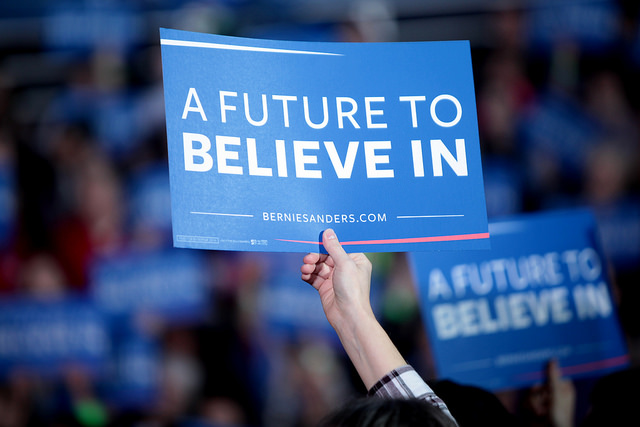
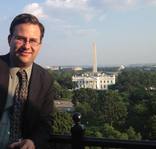








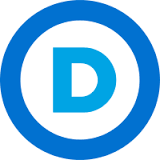
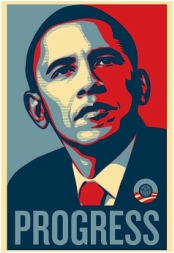

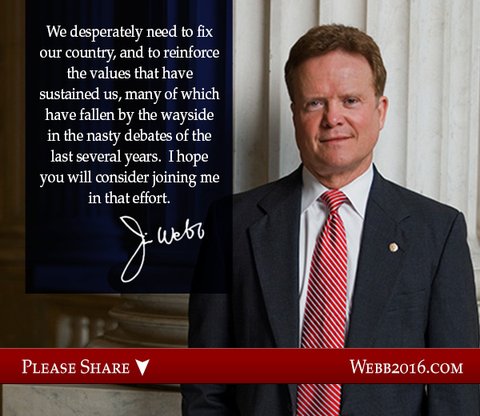
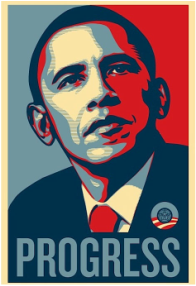

 RSS Feed
RSS Feed
